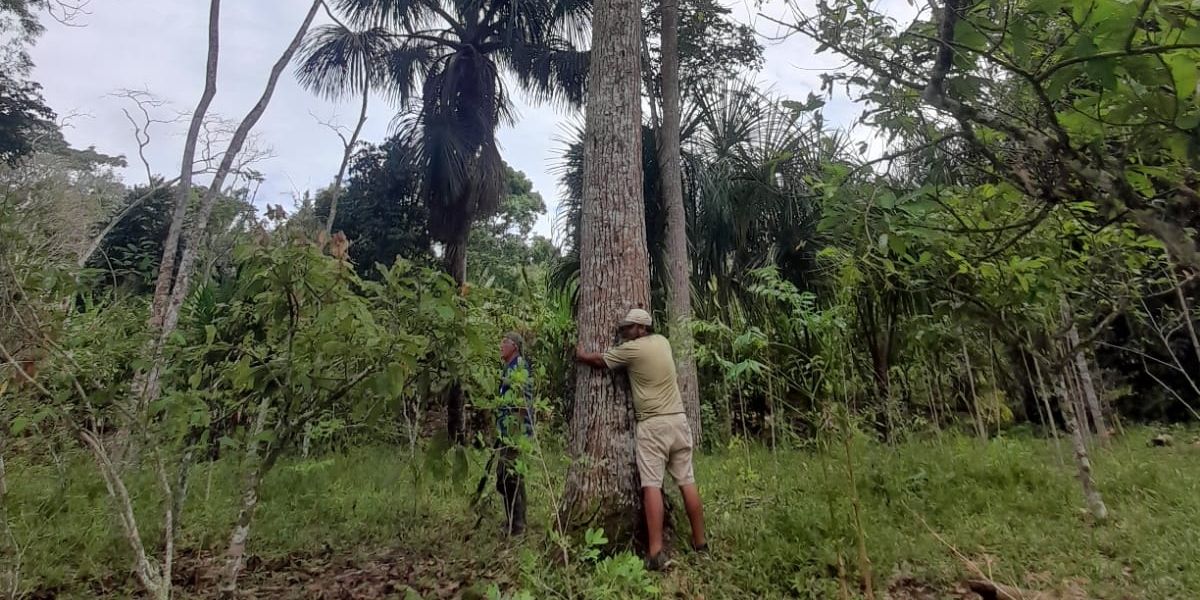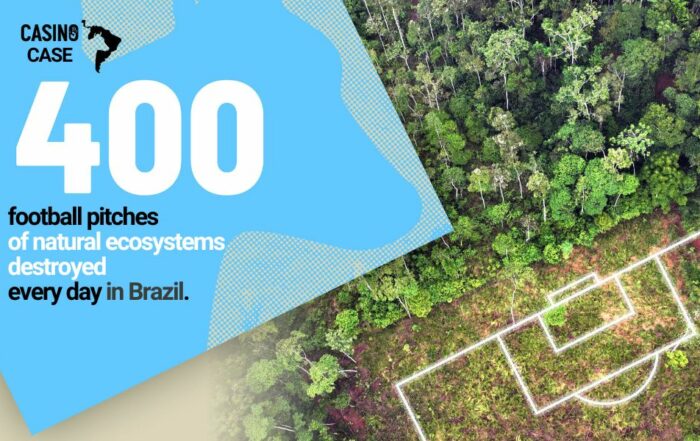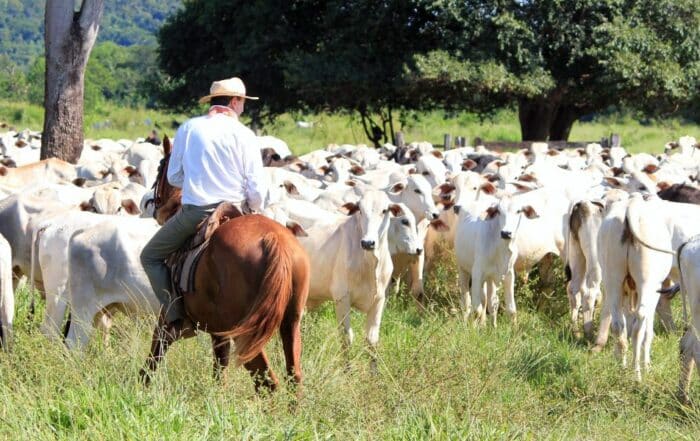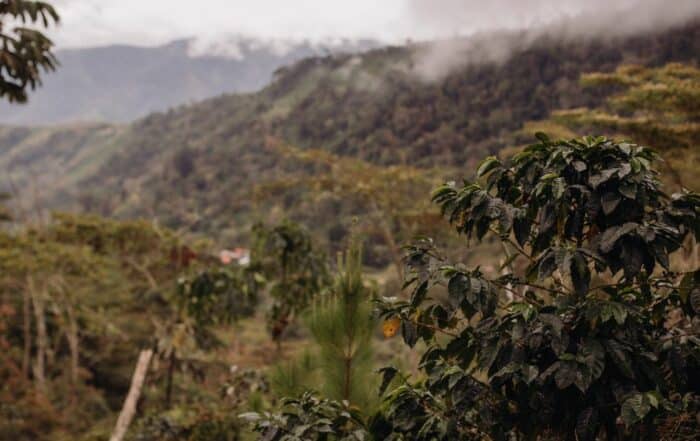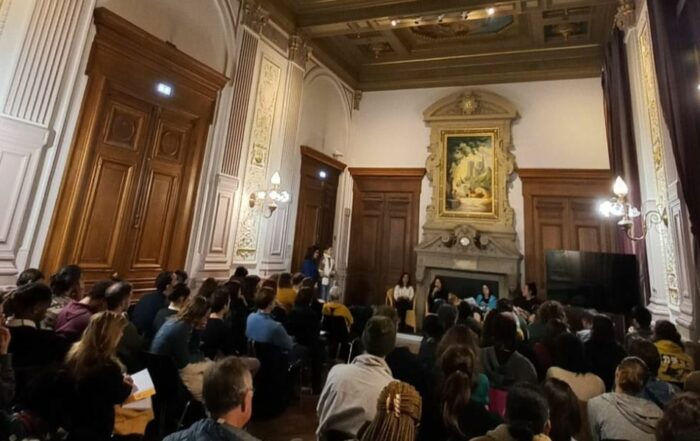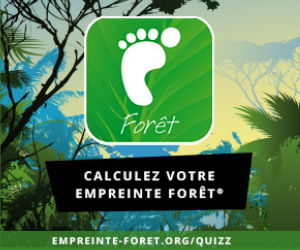January is the month for harvesting Tornillo seeds’ (Cedrelinga catenaeformis Ducke) in the Tingo Maria region. The availability of seeds of this species is between December and mid-March. We visited In participants’ plots in the working areas of Árabe, José Carlos Mariátegui, La Esperanza and Pueblo Nuevo, where adult specimens with seed potential were identified. This valuable species is of great interest to the participants. Indeed, it is highly valued in the timber market for furniture and formwork in construction, but it also has a very important ecological role for the endemic fauna.
In its adult state, a Tornillo tree can reach a height of about 30 m and provides shade to smaller tree species to help them in their early stages of development, such as fruit trees or forest trees. Belonging to the Fabaceae family, this species fixes atmospheric nitrogen in symbiosis with rhizobacteria, which allows it to maintain and recover the fertility of degraded soils or soils poor in organic matter. It is a species adapted to agroforestry systems’ with cocoa and coffee. It is also adapted to annual crops such as rice and manioc, species that are highly commercialized in the region. Another advantage is that its seeds provide food for birds in the region to compensate the scarcity of wild fruits, such as macaw species, which has a negative impact on obtaining seeds for trade in reforestation projects, but demonstrates the importance of the tornillo in the ecosystem.
In conclusion, the tornillo is an important species for the future economy of our participants, and it generates a positive impact in the short term as a nutrient scavenger in plots or hedgerows or associated with other species. We are proud to finally incorporate the tornillo as a species associated with cocoa cultivation in Tingo Maria, to enrich degraded fallow areas and to diversify agricultural plots!
January is the month for harvesting Tornillo seeds’ (Cedrelinga catenaeformis Ducke) in the Tingo Maria region. The availability of seeds of this species is between December and mid-March. We visited In participants’ plots in the working areas of Árabe, José Carlos Mariátegui, La Esperanza and Pueblo Nuevo, where adult specimens with seed potential were identified. This valuable species is of great interest to the participants. Indeed, it is highly valued in the timber market for furniture and formwork in construction, but it also has a very important ecological role for the endemic fauna.
In its adult state, a Tornillo tree can reach a height of about 30 m and provides shade to smaller tree species to help them in their early stages of development, such as fruit trees or forest trees. Belonging to the Fabaceae family, this species fixes atmospheric nitrogen in symbiosis with rhizobacteria, which allows it to maintain and recover the fertility of degraded soils or soils poor in organic matter. It is a species adapted to agroforestry systems’ with cocoa and coffee. It is also adapted to annual crops such as rice and manioc, species that are highly commercialized in the region. Another advantage is that its seeds provide food for birds in the region to compensate the scarcity of wild fruits, such as macaw species, which has a negative impact on obtaining seeds for trade in reforestation projects, but demonstrates the importance of the tornillo in the ecosystem.
In conclusion, the tornillo is an important species for the future economy of our participants, and it generates a positive impact in the short term as a nutrient scavenger in plots or hedgerows or associated with other species. We are proud to finally incorporate the tornillo as a species associated with cocoa cultivation in Tingo Maria, to enrich degraded fallow areas and to diversify agricultural plots!

